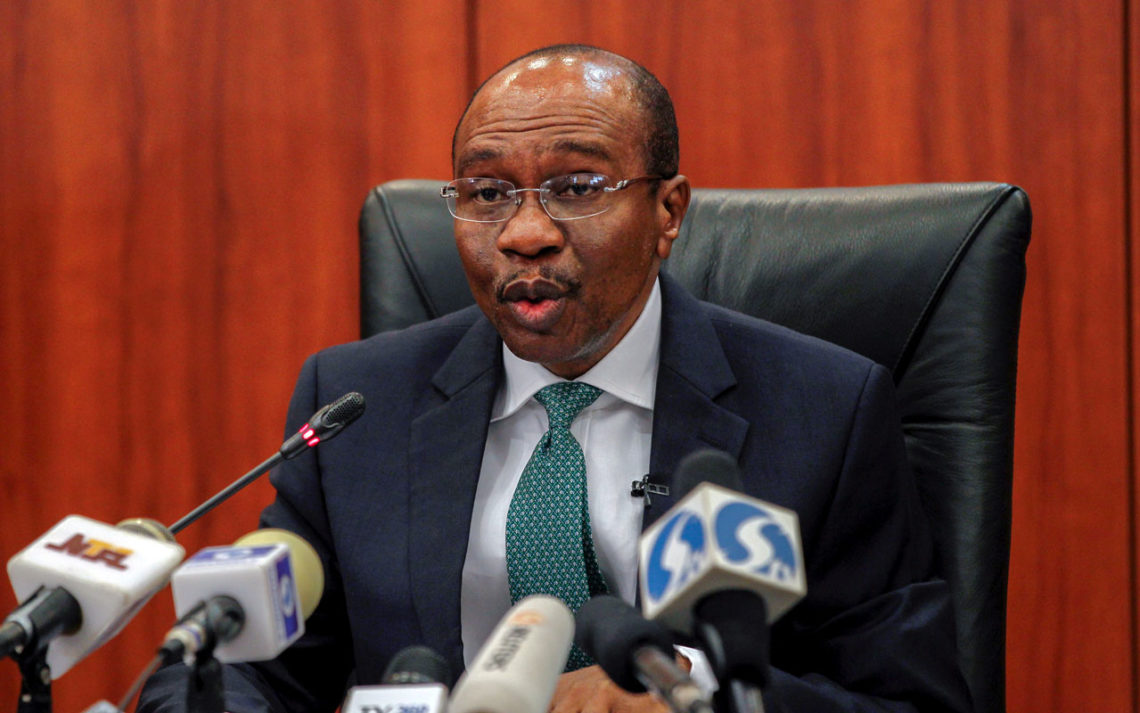Globally, Central Banks, as apex financial institutions, play pivotal roles in the growth and development of the economies where they operate. This is notable because as lenders of last resort, formulators of monetary policies and also as the government agency in charge of ensuring financial systems stability, they guide their specific economies in the appropriate direction that is desirable for positive socio-economic changes.
In Nigeria, the emergence of Godwin Emefiele, as the apex bank’s helmsman, brought increased vigour into these already established functions especially in the real sector bringing about an enhanced transmission mechanism of monetary policy actions, as well as facilitating the development of financial markets through the creation of easy access to credit for investment and production.
This intervention by Emefiele, influenced largely a significant drop in government revenue, made the infusion of development finance tools and some monetary policy innovations designed to aid recovery without jeopardising price stability, inexorably imperative.
It needs to be pointed out that this intervention of central bank in development financing is not new as it dates back to the 1920s. Actually, central banks in both advanced and emerging markets embraced quantitative easing in order to support their economies toward recovering from the global financial crisis of 2008/2009, and the associated economic downturn triggered by the COVID-19 pandemic. Without gainsaying it, development finance interventions are frequently an integral part of the recovery strategy in most countries.
On its part, the present administration has granted over N3 trillion in intervention funds which has helped generate employment and improve productivity. Since 2015, the Central Bank of Nigeria (CBN) has been rolling out multiple intervention programmes to keep Nigeria’s economy afloat.
In the real sector, the CBN introduced the 100 for 100 Policy on Production and Productivity (PPP); an intervention programme targeted at financially solidifying the local private companies with bankable projects to fund. The programme was also designed to wean Nigeria off massive importation and foreign exchange depletion by bolstering local capacity to meet local demands; create massive jobs, galvanise sustainable economic growth via exports, accelerate structural economic transformation and ultimately promote diversification and productivity.
On January 31, 28 selected local firms were unveiled at the CBN headquarters and presented with cheques totaling N23.2 billion. The money was pooled by seven commercial banks that have keyed into the programme, which among others, seek to ultimately address the nation’s unemployment nightmare by providing diverse jobs and boosting export in agriculture, healthcare, manufacturing, extractive industries, logistics services, trade-related infrastructure, and renewable energy.
Already, and going by the latest statistics from the apex bank, the intervention of the CBN in the manufacturing sector has risen to N803 billion.
“Under the N1trillion manufacturing intervention stimulus, the total of N803.36 billion has been disbursed to 228 projects across various sectors in agro-allied, mining, steel production and packaging industries, among others,” it stated.
In May 2020, the CBN introduced guidelines for the implementation of the COVID-19 intervention facility for the manufacturing sector. Part of the objectives was to improve access to affordable credit by domestic manufacturing enterprises across critical sectors of the economy; and close the financing gap necessary for the replacement of machinery and equipment to enhance local production. The manufacturing sector has received a huge boost as a result of this intervention by the apex bank.
Prior to this, the country’s manufacturing sector contributed less than 15 per cent of the Gross Domestic Product (GDP). Even more disturbing was the continuous importation of many commodities that Nigeria had the capacity to produce and export.
What is significant and encouraging is that this Emefiele policy has ignited a renewed working relationship with Deposit Money Banks and other participating financial institutions all focused on critical areas such as the agricultural and manufacturing sectors. Under the N1 trillion Real Sector Facility, the Bank has released a total of N1.40 trillion to 331 real sector projects in agriculture, manufacturing, mining, and services sectors. Under its Real Sector Support Facility (RSSF), the CBN has disbursed N166.21 billion to 25 projects.
The apex bank is assertive that its “mission through this initiative is to ensure that priority is accorded to companies that display verifiable progress in our imports’ substitution and job creation drive”. The Governor is not just putting the financial enablement in place, commendable as it is, he, also, has stridently embarked on an advocacy thrust by appealing to all prospective investors to take advantage of the huge opportunities provided for investment in the real sector under the PPP and approach their banks to submit their applications for participation under the initiative.
The Central Bank of Nigeria (CBN), in response to COVID-19 pandemic, had in April 2020 taken measures to extend credit facilities of up to N100 billion to support intervention efforts geared towards the healthcare sector. The aim of the intervention was and still remains a policy direction with the measured target of stimulating economic activities locally within the healthcare sector, while making products and services readily available to Nigerians, thereby building, diversifying and expanding the capacity of the Nigerian healthcare sector.
The apex bank is resolute that the intervention facility will not only support the federal government’s palliative measures but also provide the much-needed enhancement to beleaguered manufacturing enterprises in priority economic activities. The policy that is already well received within the target sector also focuses on boosting local manufacturing capacity and supporting mass employment, wealth creation and foreign reserve accretion.
Statistics show that CBN, in the process of practicalising its commitment to the success of this policy, had disbursed N93 billion of the fund to beneficiaries and serious positive impact has also been felt in the private sector as was deliberately envisioned. The intervention was with a view to strengthening the sector’s capacity to meet potential increase in demand for healthcare products and services.
Specifically, the scheme was to provide credit to indigenous pharmaceutical companies and other healthcare value chain players to build and or expand capacity. The scheme, as expected, is beginning to increase private and public investment in the healthcare sector, facilitate improvements in healthcare delivery and reduce medical tourism to enhance foreign exchange conservation.
A typical positive outcome of the CBN intervention in the health sector is that, recently, the vice president, Professor Yemi Osinbajo, accessed a local health facility assisted by a deposit money bank that is considered good enough to compete with its kind anywhere in the world. That decision by the Vice President saved resources that would have, otherwise, been spent on medical tourism. It proved the Emefiele policy that encourages banks to collaborate with investors in all the sectors spot on. What it also revealed is that the Emefiele gospel is sinking in even at the topmost level of government.
Akpan is an economist based in Calabar





